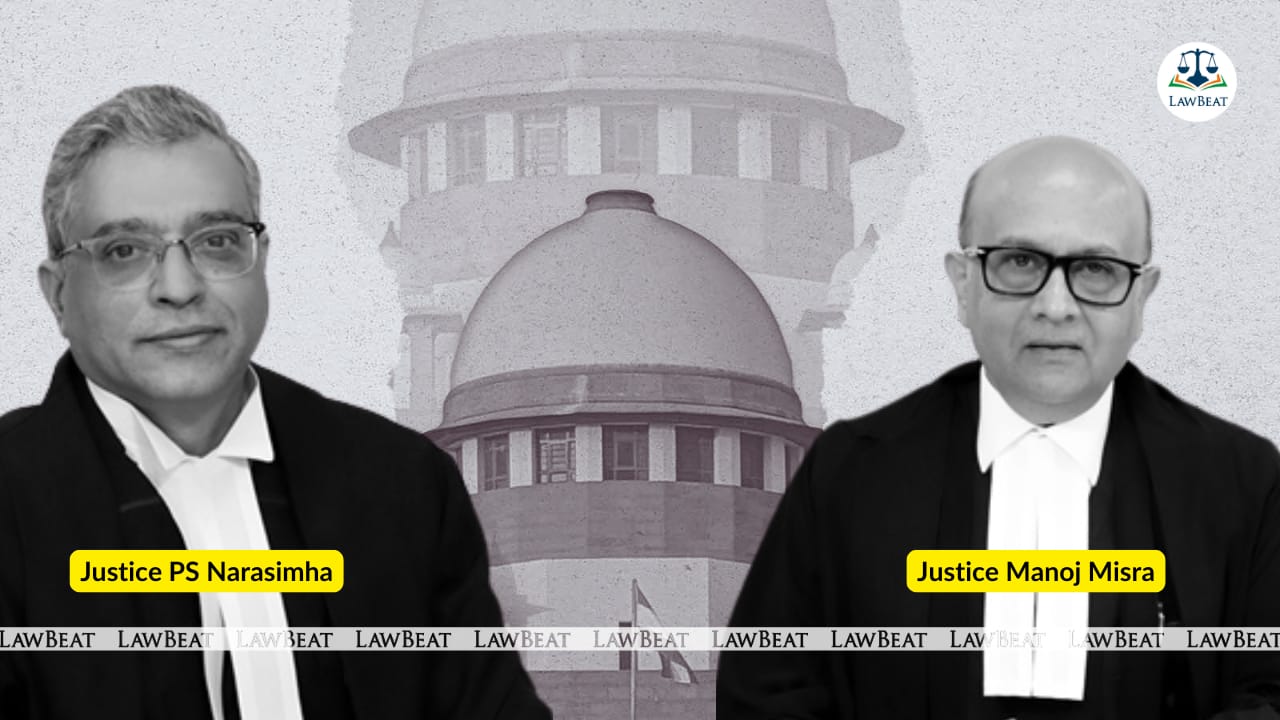IBC is a Complete Code; Protocols Maintain Legal Discipline: SC tells HCs

The Supreme Court asserted that while the supervisory and judicial review powers granted to High Courts are vital constitutional safeguards, their exercise demands rigorous scrutiny and judicious application
The Supreme Court, on January 3, 2025, emphasised the need for the High Courts to adhere to protocols and procedures for maintaining order and judicial discipline, to avoid interdicting the corporate insolvency resolution process by ignoring the fact that the Insolvency and Bankruptcy Code (IBC) is a complete code with sufficient checks and balances, remedial avenues, and appeals.
The apex court set aside the Karnataka High Court's order, which had exercised its power of judicial review to interdict a corporate insolvency process that culminated in the acceptance of a resolution plan by the committee of creditors more than four years earlier.
Acting on a batch of appeals, including one by a bank, a bench of Justices P. S. Narasimha and Manoj Misra opined that the High Court had committed an error in entertaining the writ petition, ignoring delay and laches.
"High Court should have noted that Insolvency and Bankruptcy Code is a complete code in itself, having sufficient checks and balances, remedial avenues and appeals," the bench said.
The court allowed three appeals—one by the successful resolution applicant, METL; another by the bank comprising the Committee of Creditors (CoC); and a third by the Resolution Professional appointed by the adjudicating authority to conduct the Corporate Insolvency Resolution Process (CIRP) against the corporate debtor, Associate Decor Ltd.
The bench noted that CIRP proceedings had commenced on October 26, 2018, six years ago, and that the resolution plan of the appellant was approved in 2020, four years earlier.
The importance of concluding CIRP proceedings has been highlighted by the court on several occasions. In a recent order in Committee of Creditors of KSK Mahanadi Power Company Ltd. vs. M/s Uttar Pradesh Power Corporation Ltd., the court observed that unjustified interference with proceedings initiated under the Insolvency and Bankruptcy Code, 2016, breached the discipline of law, the bench said.
"Adherence of protocols and procedures maintains legal discipline and preserves the balance between the need for order and the quest for justice. The supervisory and judicial review powers vested in High Courts represent critical constitutional safeguards, yet their exercise demands rigorous scrutiny and judicious application," the bench said.
Mohammed Enterprises (Tanzania) Ltd (METL), the successful resolution applicant, had submitted its expression of interest in 2018. The resolution plan was approved by the CoC through e-voting on February 11, 2020. The appellants' plan was approved, and the resettlement proposal submitted by respondent no. 1, Farooq Ali Khan, was rejected.
This decision of the CoC led to the appellant being declared the successful resolution applicant unanimously by 100% of the CoC's voting share.
Meanwhile, an interlocutory application was filed before the Adjudicating Authority seeking directions to the CoC to reconsider the resolution plan. The Adjudicating Authority's decision to place the resolution plan for reconsideration by the CoC was appealed to the NCLAT, which, in 2022, set aside the Adjudicating Authority's order.
The first respondent then approached the High Court by filing a writ petition seeking the quashing of the Minutes of Meeting, the letter of intent, the declaration of the successful resolution applicant, and a direction to the CoC to accept its proposal. It also sought to set aside the Minutes of Meeting where the CoC Members had unanimously rejected the settlement proposal of respondent no. 1.
The High Court initially granted an ex parte stay and finally, on November 22, 2023, allowed the writ petition, setting aside the resolution plan. Upon review petitions filed by the banks, the High Court restored the writ but again, by its impugned order on April 22, 2024, set aside the resolution plan, primarily on the ground that principles of natural justice were violated as 24 hours’ notice was not granted.
Solicitor General Tushar Mehta supported the appellant's submission, relying on the court's decision in CoC of KSK Mahanadi Power Company Ltd. vs. M/s Uttar Pradesh Power Corporation Ltd., and took exception to the High Court exercising its discretionary jurisdiction under Article 226 of the Constitution, breaching the discipline of alternate remedy as contemplated under the IBC.
The respondent argued that there was no delay in approaching the High Court and submitted that the offer made by the resolution applicant was much inferior to the proposal made by the first respondent under Section 12(A) of the Code.
Having considered the matter, the bench stated, "This is certainly not a case for the High Court to interdict CIRP proceedings under the Insolvency and Bankruptcy Code".
The court rejected the plea on delay, noting that CIRP had commenced in 2018 and the 19th CoC meeting had occurred in 2020, while the High Court's jurisdiction was invoked in 2023.
"The time gap between these two events is almost three years," the bench said.
The court also noted that the High Court was unaware that respondent no. 1 had availed the statutory remedy under the Code.
"At least on this ground, the High Court should have relegated respondent no 1 to the procedure under the Code and permitted him to continue the remedy that he has chosen to adopt. We may hasten to add that it is not necessary for us to enter into the merits of the matter to examine the amounts offered by respondent no 1 and to contrast with the offer made by the applicant," the bench said.
After setting aside the High Court's order, the bench directed that the Adjudicating Authority would now commence the proceedings from where they had been interdicted by the High Court and complete them as expeditiously as possible, in accordance with the spirit of the Code.
Case Title: Mohammed Enterprises (Tanzania) Ltd Vs Farooq Ali Khan & Ors
